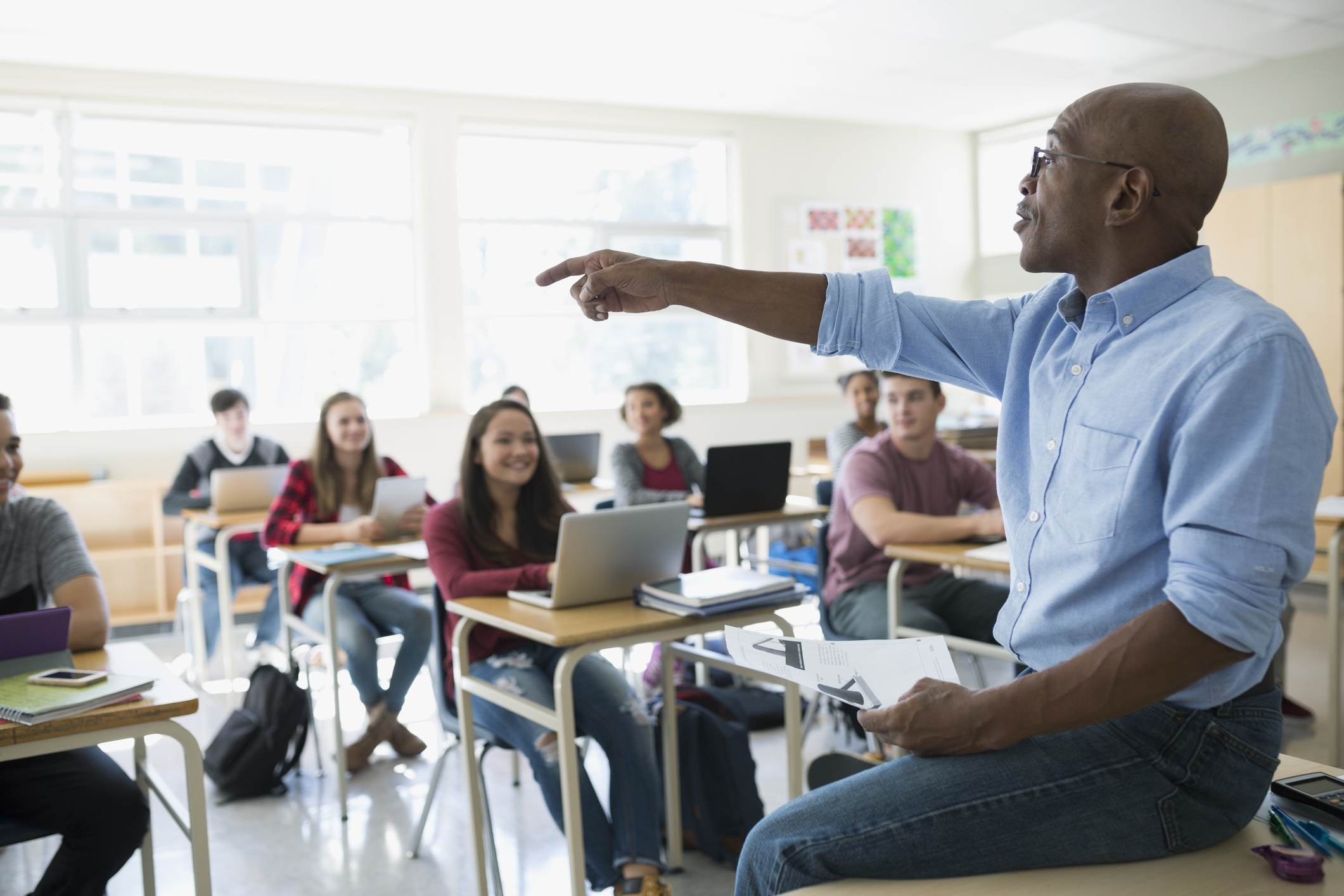Master Primary Science Concepts with Quality Tuition in Singapore
Master Primary Science Concepts with Quality Tuition in Singapore
Blog Article
Discovering the Different Mentor Approaches in Key Science Education Today
The landscape of key scientific research education and learning is progressing, with various mentor methods getting prominence in modern class. Inquiry-based learning, hands-on experiments, and the combination of modern technology are redefining how educators involve young minds. Additionally, joint techniques and set apart instruction are being employed to cater to the diverse requirements of trainees, improving both engagement and understanding. As we analyze these techniques, inquiries occur regarding their effectiveness and the effects for future educational techniques. What might these shifts in strategy mean for the next generation of learners?
Inquiry-Based Discovering
Inquiry-Based Understanding (IBL) is an instructional method that encourages students to explore scientific concepts through questioning, investigation, and hands-on experimentation. This technique emphasizes the role of students as active individuals in their learning, promoting crucial reasoning and analytical abilities. By engaging with real-world questions, students come to be motivated and interested, which boosts their understanding of clinical concepts.
In IBL, educators act as facilitators, guiding pupils as they navigate their queries as opposed to delivering info straight. This student-centered method permits for distinction, accommodating different discovering designs and speeds. Students develop skills in developing hypotheses, making experiments, and assessing information, which are crucial for scientific literacy.
In addition, IBL cultivates collaboration among pupils, encouraging them to share concepts and searchings for. This cumulative query advertises social skills and a feeling of area within the class. The process of questions urges resilience, as trainees discover to accept failing as a tipping rock toward understanding.
Hands-On Experiments
Hands-on experiments are a crucial part of efficient scientific research education and learning, matching the principles of inquiry-based discovering. These experiments enable students to engage directly with scientific principles, fostering a much deeper understanding with experiential knowing. By manipulating materials and observing results, young learners can realize abstract concepts in concrete means.
Such tasks promote crucial reasoning and analytic skills, as students hypothesize outcomes, conduct experiments, and assess results. This process motivates them to ask concerns, improve their understanding, and establish a scientific mindset. Additionally, hands-on experiments can be customized to diverse understanding styles, making certain that all pupils have the chance to engage meaningfully with the web content.
Furthermore, hands-on experiments frequently encourage cooperation among peers, promoting teamwork and communication abilities. Working in teams makes it possible for trainees to share concepts, review findings, and discover from one another, which improves their overall academic experience.
Incorporating hands-on experiments into the main scientific research educational program not only enriches the finding out setting yet also grows a lifelong interest in scientific research. By actively joining their education and learning, students are more most likely to create a passion for clinical questions that expands past the classroom.

Modern Technology Integration
Incorporating innovation into primary scientific research education and learning has actually ended up being significantly crucial in fostering trainee involvement and boosting discovering outcomes. The use of digital devices, such as interactive simulations, virtual labs, and academic software application, supplies trainees with possibilities to check out scientific concepts in innovative ways. These resources promote a deeper understanding of complex topics by allowing learners to imagine and control variables that would certainly be not practical in a standard classroom setting.
Furthermore, modern technology combination encourages customized discovering experiences. Pupils can progress at their very own pace, taking another look at difficult concepts through multimedia sources, which satisfy different understanding styles. This flexibility not only sustains specific development yet additionally grows a sense of freedom in students.
In addition, innovation acts as a bridge to real-world science, attaching students with present research and specialist contributions. Access to scientific journals and on the internet databases widens students' viewpoints on clinical inquiry and fosters important assuming abilities.
Collaborative Knowing
Joint learning plays an essential duty in key scientific research education by cultivating teamwork and interaction skills among pupils. This technique motivates learners to interact, share knowledge, and take part in analytical, which enhances their understanding of clinical concepts. By joining group activities, pupils learn to verbalize their ideas, listen to diverse point of views, and work out solutions, all of which are vital abilities in both scholastic and real-world contexts.

Research shows that collaborative knowing can result in increased motivation and interaction in science topics, as trainees discover enjoyment in shared experiences (primary science tuition Singapore). In addition, this method prepares pupils for future joint ventures, furnishing them with the abilities essential for reliable teamwork in higher education and learning and specialist environments. Eventually, accepting joint discovering in key science education can significantly improve the knowing experience and promote a deeper understanding of scientific inquiry
Set Apart Instruction

Differentiated guideline can materialize in different methods, such as varying the content, processes, or products of understanding. For additional info circumstances, educators may make use of tiered assignments that provide varying degrees of intricacy, permitting trainees to operate at their corresponding preparedness levels. In addition, flexible grouping techniques can assist in partnership amongst students with different capabilities, cultivating peer understanding.
Analysis plays an important duty in this technique, as it informs direction and helps educators recognize each trainee's distinct requirements. Developmental evaluations, such as monitorings and tests, can direct educators in readjusting their approaches to improve finding out outcomes. primary science tuition Singapore. Ultimately, by carrying out set apart direction in primary science education, instructors can grow an extra equitable and efficient discovering atmosphere, equipping all students to reach their complete potential in recognizing scientific sensations
Conclusion
In recap, the diverse training approaches in primary scientific research education, including inquiry-based understanding, hands-on experiments, technology combination, collective understanding, and differentiated direction, jointly add to an extra reliable learning atmosphere. These techniques advertise vital thinking, analytic skills, and a deeper comprehension of clinical ideas. By carrying out these strategies, educators can develop encouraging and interesting classrooms that attend to the varied demands of pupils, eventually cultivating a lifelong interest in science and boosting academic success.
Inquiry-Based Knowing (IBL) is an instructional approach that motivates students to explore scientific concepts with questioning, examination, and hands-on experimentation.Joint learning plays a crucial function in key scientific research education and learning by fostering team effort and communication skills amongst trainees.Study suggests that joint knowing can lead to increased inspiration and engagement in scientific research subjects, as trainees find enjoyment in common experiences.In cultivating a comprehensive discovering setting, set apart direction emerges as a crucial technique to have a peek here accommodate the varied needs and capacities of trainees in key science education and learning. Ultimately, by executing distinguished direction in main science education and learning, educators can grow an extra fair and reliable knowing setting, empowering all trainees to reach their complete potential in understanding clinical phenomena.
Report this page